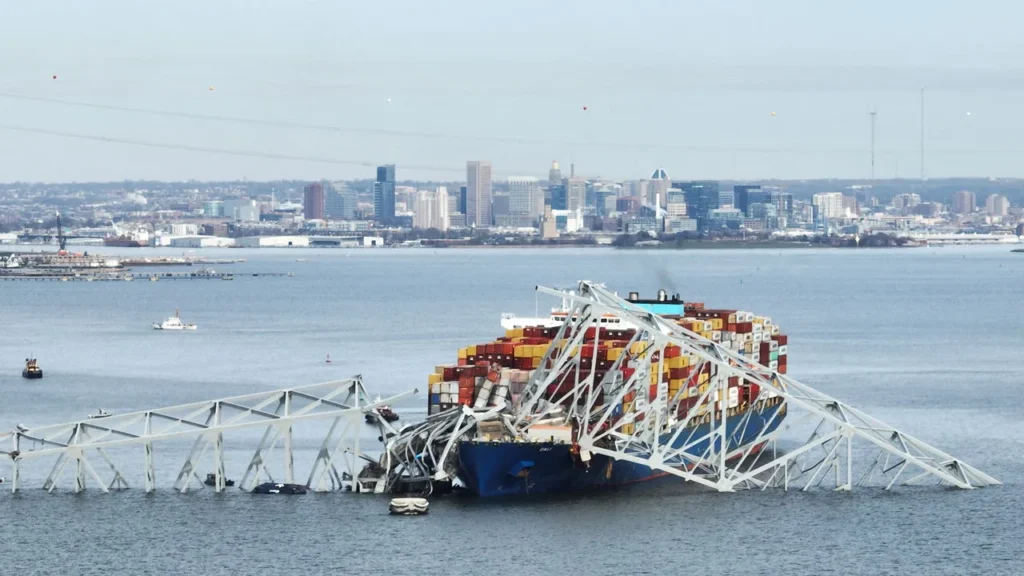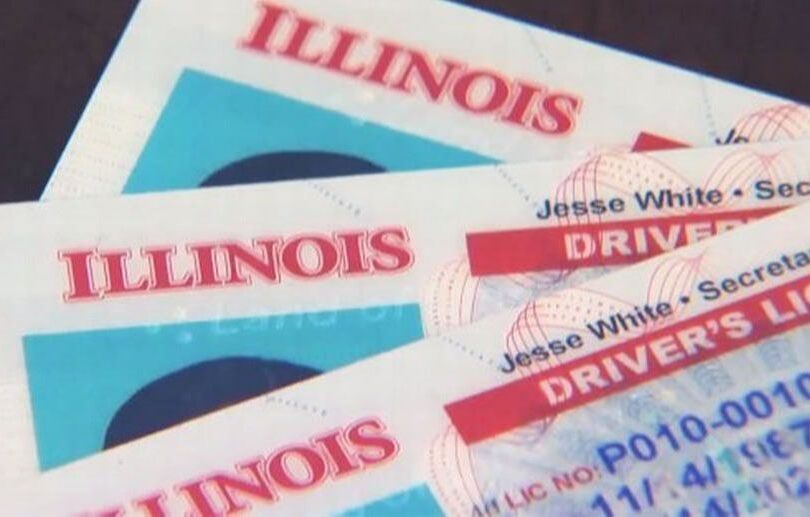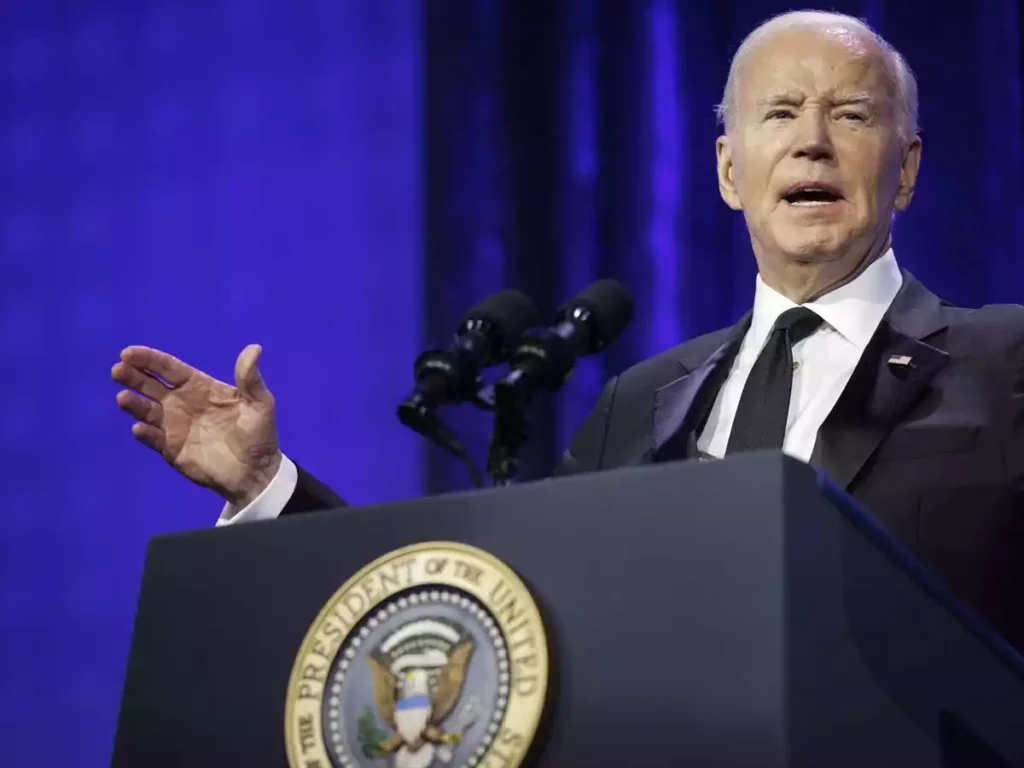The economic impact after the collapse of the Francis Scott Key Bridge
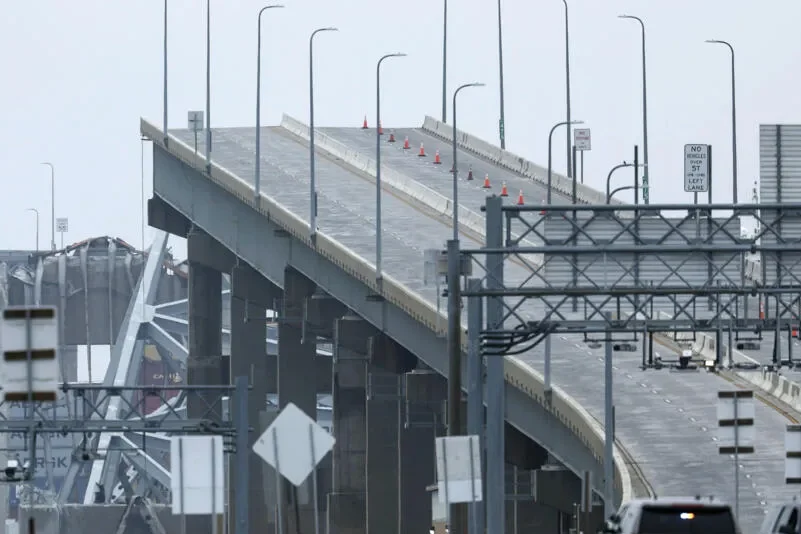
The economic impact after the collapse of the Francis Scott Key Bridge is not a minor concern, beyond the tracks and the road collapse for the city.
The Francis Scott Key Nine Bridge was five years in construction and collapsed in eight seconds after the impact of the Singapore-flagged container ship Dali.
The death toll stands at six, the U.S. government has said.
According to U.S. Transportation Secretary Pete Buttigieg, the economic fallout following the collapse of the Francis Scott Key Bridge “will not be trivial.”
And although he was reluctant to specify the cost of the bridge collapse, he explained that the value of the goods flowing through the port facilities each day is between $100 million and $200 million per day.
Another economic repercussion following the collapse of the Francis Scott KeyT bridge is also the loss of maritime traffic close to $9 million a day.
“The economic cost will depend on how many days the port remains unusable,” Gary Hufbauer, a researcher at the Peterson Institute for International Economics, explained to Barron’s, a weekly edited by Dow Jones.
To get an idea of the economic impact of the collapse of the Francis Scott Key Bridge, it is necessary to analyze the importance of this road infrastructure in context.
READ HERE: LATINOS KIDNAPPED BY HAMAS.
The economic impact after the collapse of the Francis Scott Key Bridge
The Port of Baltimore is the ninth busiest port in the U.S. and the busiest for automobile shipments, with at least 750,000 vehicles in 2023, according to data from the Maryland Port Administration.
Manufacturers General Motors and Ford have announced they will reroute affected shipments and made it clear that the impact was going to be minimal.
So far this month, Mazda has imported the most through Baltimore by dollar value, followed by Mercedes-Benz, Subaru, Mitsubishi and Volkswagen, according to data compiled by Bloomberg.
READ MORE: DONALD TRUMP ARGUES HE HAS NO CASH TO PAY CLAIMS TO PAY LAWSUITS.
As stated to Bloomberg by manufacturer Mercedes-Benz, another business shark at the Port of Baltimore are in contact with logistics service providers and are continuously monitoring the situation.
Therefore, companies that rely on Baltimore’s port facilities will diversify shipments to other ports, which analysts say will be New York and New Jersey.
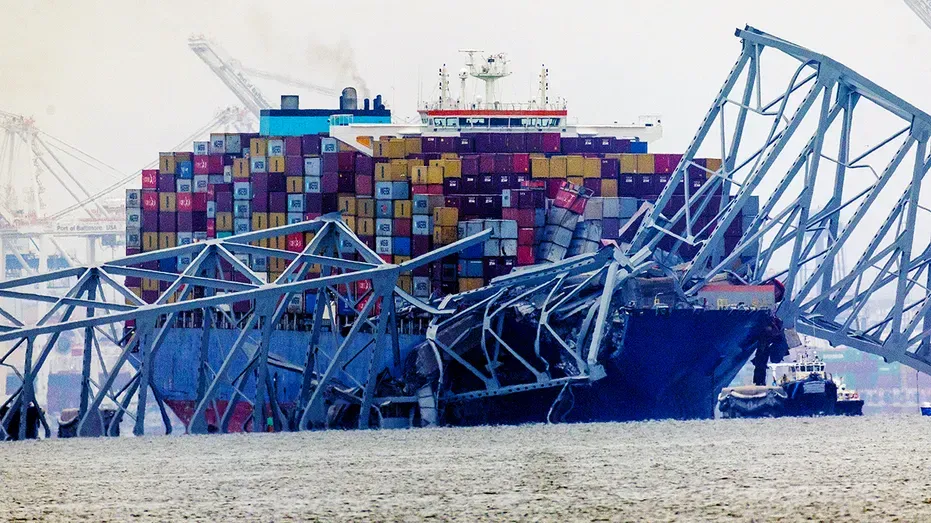
One of the nation’s most important ports
Baltimore is among the most crucial U.S. ports on the Atlantic coast, handling $80 billion worth of freight traffic from overseas in 2023.
The waterway is essential to the Midwest and vital to the transportation of automobiles.
The port authority confirmed the suspension of maritime traffic until further notice, although land operations continue. However, the length of time this interruption will last remains uncertain.
Since the incident, numerous vessels bound for Baltimore have been diverted to other ports or anchored in the Chesapeake Bay, causing congestion in nearby ports such as Annapolis.
Another aspect to be mentioned as an economic repercussion after the fall of the Francis Scott Key Bridge is that cruise companies such as Norwegian Cruise Line, are looking for alternatives for their routes.
Similarly, Carnival Cruise Line, for example, had scheduled a stop in Baltimore this Sunday, that will not be possible.
On the other hand, the Port of Baltimore employs 15,300 people but almost 140,000 others depend on its activity, so the president of the local longshoremen’s union, Scott Cowan, told The Baltimore Sun newspaper that the suspension of maritime traffic will be “catastrophic”.
